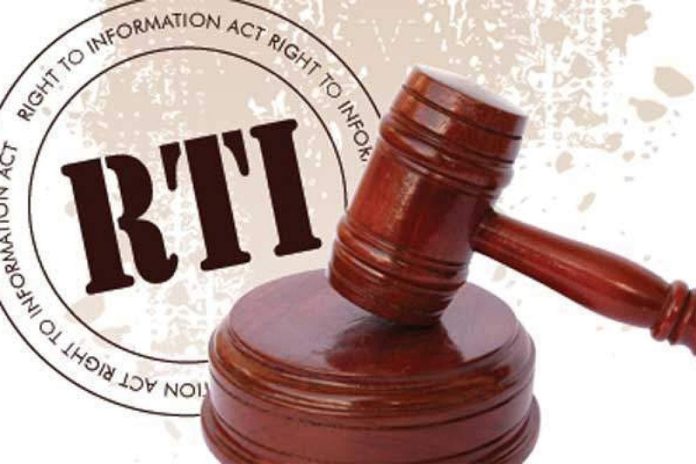‘Procurement details should be suo moto disclosed’
*Don’t compel people to frequently use transparency law
Mohinder Verma
JAMMU, May 12: Central Information Commission (CIC) has told the Public Authorities of the Government of Union Territory of Jammu and Kashmir that cherished objective of Right to Information Act can be realized only when they comply with proactive disclosure norms and people should not be compelled to resort to frequent use of the transparency law to get information from the departments.
The Central Information Commission was dealing with the Second Appeal/Complaint relating to denial of information about the bids generated through GeM portal, procurements made and the names and documents of the suppliers of books for a library.
“Keeping in view the facts of the case and the submissions made by both the parties, the Commission is of the view that tender related information sought in the RTI application which is permissible for disclosure under the RTI Act, 2005 should be suo moto disclosed in the public domain in the interest of transparency and accountability”, Chief Information Commissioner Heeralal Samariya said.
Follow the Daily Excelsior channel on WhatsApp
The CIC further said, “voluntary disclosure of all information that ought to be displayed in the public domain should be the rule and members of public seeking information through RTI application should be an exception”.
“An open Government, which is the cherished objective of the RTI Act, can be realised only if all public offices comply with proactive disclosure norms. Section 4(2) of the RTI Act mandates every Public Authority to provide as much information suo-moto to the public at regular intervals through various means of communications, including the internet, so that the public need not resort to the use of RTI Act”, the Commission told all the Public Authorities of the Union Territory of Jammu and Kashmir.
The Commission has also drawn the attention of the Public Authorities towards the guidelines regarding implementation of suo-moto disclosure under Section 4 of the RTI Act, 2005 issued by the Department of Personnel and Training (DoPT).
The guidelines state: “Information relating to procurement made by Public Authorities including publication of notice/tender enquiries, corrigenda thereon, and details of bid awards detailing the name of the supplier of goods/services being procured or the works contracts entered or any such combination of these and the rate and total amount at which such procurement or works contract is to be done should be disclosed”.
“The information disclosable as per the Ministry of Finance, Department of Expenditure’s communication dated 30th November, 2011 on Mandatory Publication of Tender Enquiries on the Central Public Procurement Portal and communication dated March 30, 2012 on implementation of comprehensive end-to-end e-procurement should be disclosed under Section 4”, the guidelines further state. However, the information about procurement which falls within the purview of Section 8 of the RTI Act can be exempted.
The Section 8 of the RTI Act read: “There is no obligation to give any citizen an information which relates to personal information and disclosure of which has no relationship to any public activity or interest, or which would cause unwarranted invasion of privacy of the individual unless the Central Public Information Officer or the State Public Information Officer or the Appellate Authority, as the case may be, is satisfied that the larger public interest justifies the disclosure of such information.
While disposing of the Second Appeal/complaint, the CIC has issued directions that tender related information permissible for disclosure under the RTI Act, 2005 be disclosed on the website of the Public Authority in the interest of public at large after taking into consideration the exemptions listed under Section 8 of the Act.
The Commission has also sought compliance from the Public Authority by June 25, 2024.


